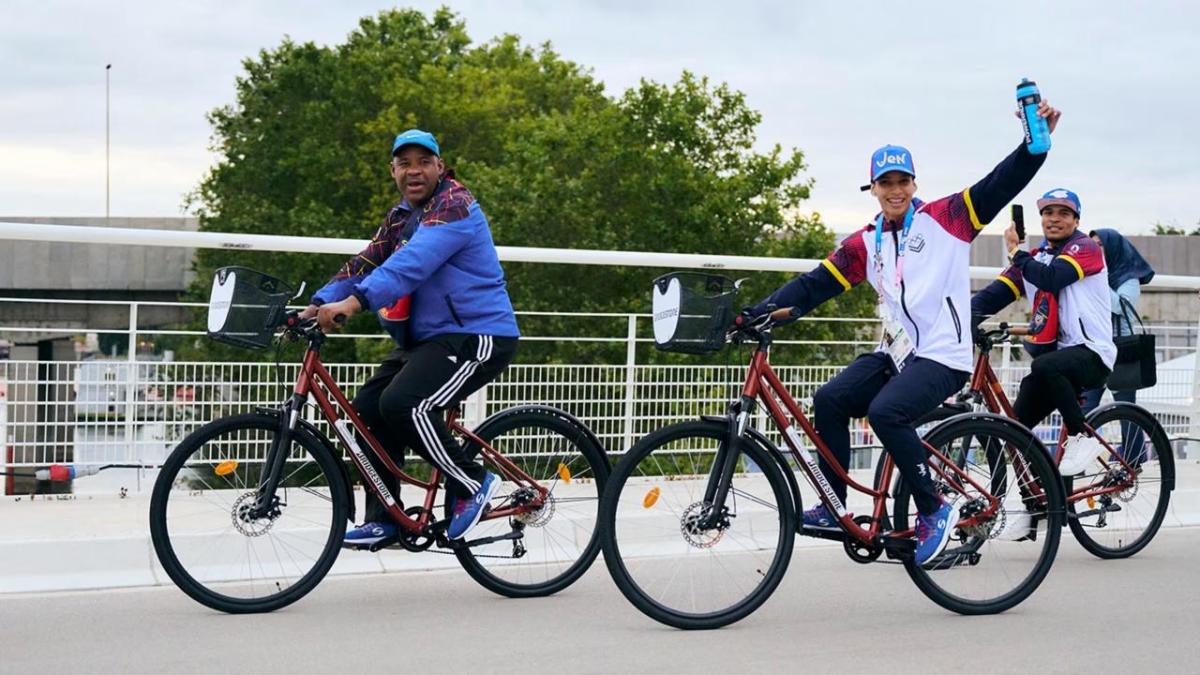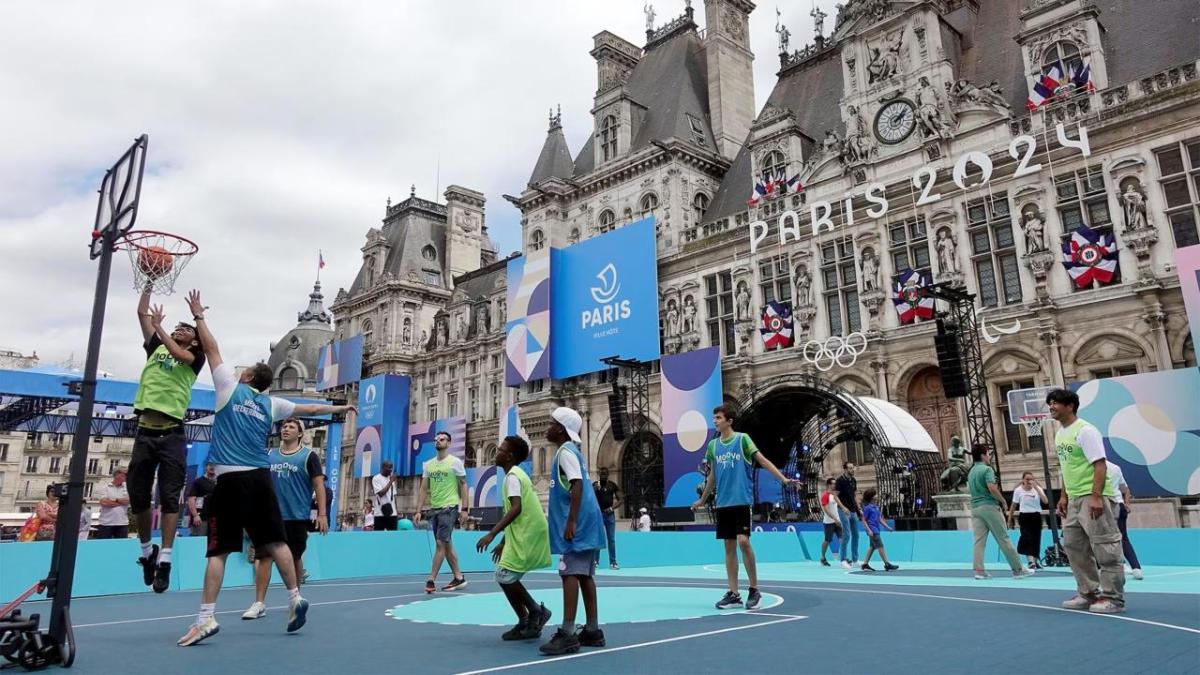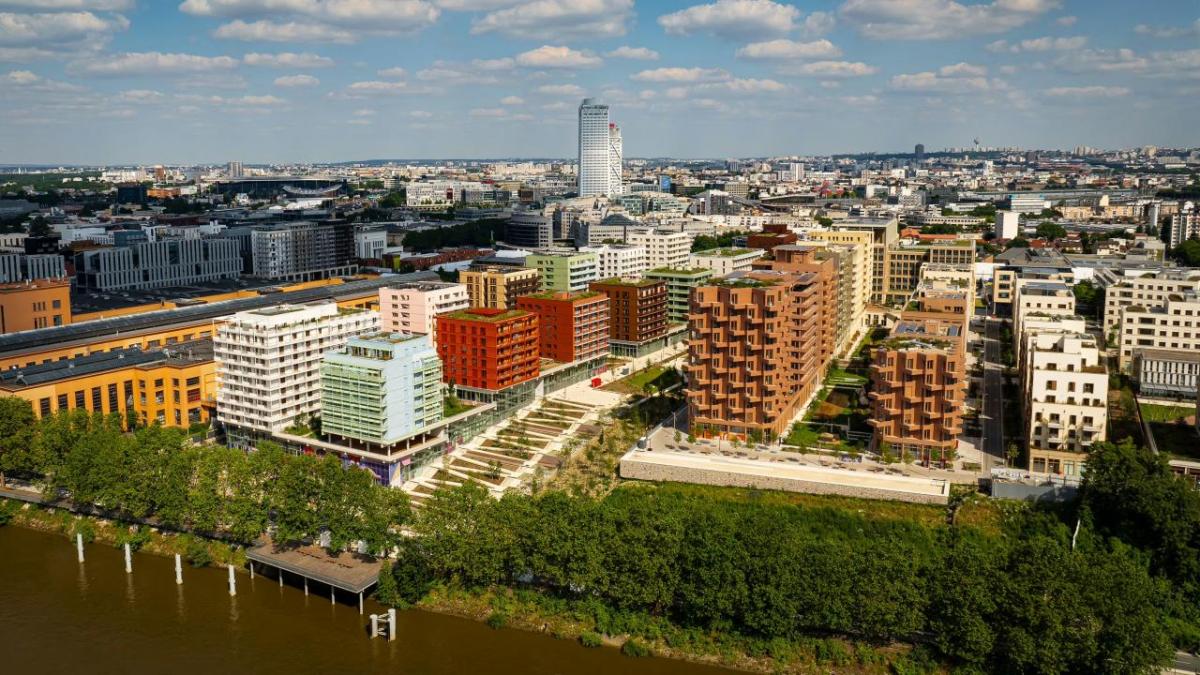Paris 2024: More Sustainable, More Useful, More Responsible
Beyond staging spectacular Olympic Games, Paris 2024 organisers have been laser-focused on reducing their carbon footprint and creating lasting benefits for France and its people.
International Olympic Committee news
The Games are the first to be fully aligned with the International Olympic Committee (IOC)’s strategic roadmap, Olympic Agenda 2020, with sustainability and legacy driving every aspect of their planning and delivery. Olympic Agenda 2020 shapes the future of the Olympic Movement and the Games, making them more sustainable, cost-effective and aligned with the needs of the host communities, and the challenges of our times.
“When the IOC put together the reforms of Olympic Agenda 2020, our ambition was to make the Games more sustainable, more responsible and useful for the host population,” said Tania Braga, IOC Head of Impact and Legacy, speaking at a joint IOC-Paris 2024 press briefing dedicated to sustainability and legacy. “This translates into reducing the footprint and minimising any negative impacts of the Games, while creating positive benefits for the hosting population well before the Games start.
The idea is that the Games adapt to the hosts and to the needs of the local population. Legacy and sustainability have become central to all aspects of the Games, from the initial moments of dialogue before the candidature, to decades after. Paris 2024 has done an amazing job in bringing this ambition to reality.
Tania Braga
IOC Head of Impact and Legacy
Delivering more sustainable Games
Amongst Paris 2024’s key sustainability commitments is the objective to cut the carbon footprint of the event by 50 per cent compared to the London 2012 and Rio 2016 average, aligning with the Paris Agreement on Climate Change.
“We believe the Games can change society, but that they also have to evolve with it,” said Georgina Grenon, Paris 2024 Director for Environmental Excellence. “Today, we’re proving that the Olympic Games can provide and showcase concrete solutions to secure climate ambition, to protect biodiversity and to develop much higher circularity – and that is across all operations.
These are Games that deliver more with less, better, while leaving a long-lasting legacy. For that we have turned the Games into a laboratory and a springboard for innovation.
Georgina Grenon
Paris 2024 Director for Environmental Excellence
Ninety-five per cent of Paris 2024 venues are either existing or temporary. All venues are powered by renewable energy and accessible by public transport, significantly reducing the carbon footprint. Paris 2024 has also significantly cut its use of resources compared to previous Games, prioritising renting and sharing over buying, and controlling the full lifecycle of resources – before, during and after the Games. To date, a second life for 90 per cent of equipment and goods has been secured.
Creating lasting social benefits
Millions of people and businesses across France have benefitted from the Games initiatives even long before the event’s kick-off.
“We are fully aligned with Olympic Agenda 2020 and we worked to maximise positive impacts of the Games for those who need them the most,” said Marie Barsacq, Paris 2024 Director for Impact and Legacy. “Today in France we can prove that sport is not only about high performance and sport practice, it also has a massive social impact. This is a key factor for achieving long-term legacy.”
Paris 2024 has focused on bringing more sport to more people, particularly the young. The Games have helped introduce 30 minutes of daily physical activity into French primary schools, provided free swimming lessons to over 36,000 children across France, and engaged 5 million young people across eight editions of Olympic and Paralympic Week.
The Games have also generated substantial economic opportunities for their hosts. More than 181,000 people have been employed in Games-related jobs, boosting the local job market. Ninety per cent of suppliers are French, with 78 per cent being small- and medium-sized enterprises. The Games are expected to generate between EUR 6.9 and EUR 11.1 billion in economic activity within the Paris metropolitan area, significantly benefitting the local economy.
Seine-Saint-Denis – one of the poorest and youngest areas in France and the heart of Paris 2024 – stands to gain significantly from the Games, with 80 per cent of the public investment targeting the region. The Aquatics Centre, strategically located there, will be transformed after the Games into a multisport facility, featuring fitness areas, a climbing wall, a skatepark and more. The Olympic Village, also in Seine-Saint-Denis, will become a new residential district with 2,800 apartments for 6,000 people, 25 per cent of which will be social housing.
“Today, Paris 2024 is proving that it is possible to stage spectacular, inclusive and unique Games in a more responsible, more sustainable and more useful manner,” said Braga. “We can say that Paris has already established new standards for more sustainable events and more sustainable Olympic Games overall.”
Read more about all you need to know about Paris 2024 Sustainability and Legacy.





